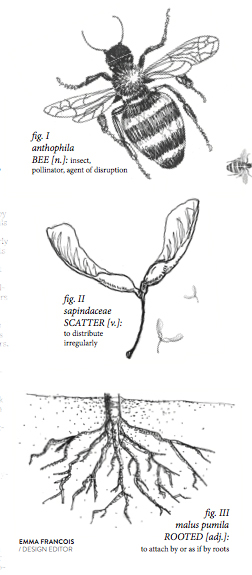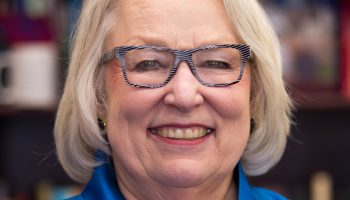Jane Hamilton’s The Excellent Lombards and Ann Patchett’s Commonwealth both begin with mundane events that quickly take on biblical proportions.
The Excellent Lombards opens with a storm — “roiling sky, pure wrath above” — descending on the Lombard family’s apple orchard. Jim Lombard, the family patriarch, decides to defy the weather and continue to bale hay. He escapes the storm unscathed. It’s a small miracle.
Commonwealth starts with an intoxicating opening line: “The christening party took a turn when Albert Cousins arrived with gin.” What follows is a party fueled by the gin (and some freshly squeezed orange juice) that rivals the miracle of the loaves and the fishes. It moves from biblical to bacchanalian when Albert Cousins kisses Beverly Keating — a married woman — and incites a chain of events that will tear the Keating and Cousins clans asunder.
Both novels tell family tales, but Hamilton and Patchett give us very different visions of what “family” can mean. Besides their somewhat biblical beginnings, one small, solid similarity the books share is that they feature characters who are allergic to bee stings.
Hamilton’s book is a traditional bildungsroman, covering a few years of development in the life of Mary Frances Lombard. Patchett’s approach is more sweeping: It follows the fallout from that stolen kiss over the course of 50 years. Hamilton’s novel revels in rootedness. Patchett gives us a scatter of seeds in the wind.
Those roots run deep in The Excellent Lombards, largely because of Hamilton’s central character. Mary Frances Lombard — at turns called “Frankie,” “Francie,” “Marlene,” “MF” and “the Imp” — is, I confess, a little annoying. I think Hamilton intends her to be. Isn’t everyone annoying when they’re between 12 and 16 years old?

Frankie Lombard wants nothing more than to be insulated by her family. At a young age, she resolves to marry her brother. Later, she deliberately loses a geography bee that could send her to college. All of this is done in the name of staying at home, continuing what she sees as the Lombard dynasty. She often envisions herself being at war with everyone outside of her immediate family, so it’s no surprise she sometimes comes off like a dictator.
Patchett’s novel bounces between its many characters over the decades it covers, but Franny Keating, whose christening party was the one interrupted by that kiss, becomes a central figure.
Franny Keating would like to be far away from her large, extended family and the drama on which it is built. So far, in fact, that she essentially sells them out, plus a little bit of her own soul, to the novelist Leo Posen. He uses her family history as the basis for a novel titled — wait for it — Commonwealth.
Considering Franny and Frankie side by side sounds like the premise for a crappy CBS sitcom about mismatched roommates that would probably be titled “Franny and Frankie.” Franny hates her family, but Frankie loves her family! How ever will they get along?
It is not that, though, thank God.
What Hamilton and Patchett offer in The Excellent Lombards and Commonwealth are two wildly divergent approaches to telling these family stories. But both are attuned to the particular and peculiar senses of devotion and terror that come with being related to other people, one of the few things in life we cannot help.
Thinking about the novels alongside each other gives the reader essentially a case study in what it means to grow up, delineated by the paths on which Hamilton and Patchett take us.
Hamilton wonderfully evokes the somewhat obnoxious sensibility that many of us have when they’re teenagers: that we alone are at the center of the universe, that we alone are responsible for holding it up.
When Frankie Lombard thinks about the future, she thinks, “No Lombard should have to leave the farm for any reason.” She takes it upon herself to be the chosen one — the one who will remain on the farm and perpetuate the Lombard dynasty.
Hamilton draws the novel to a close before we can see Frankie’s future proper. But I don’t think it’s too much of a stretch to think that her life might not turn out in a way that perfectly fits her grand designs. By the end, Frankie is coming to a realization: that the world is a lot wider than the Lombard family farm, and that she might want to seek out a place in it. The roots start to retract.
Patchett, on the other hand, portrays the unpredictable paths our lives can take.
Late in Commonwealth, Franny Keating thinks about how her life might have been different. When she considers how things would have turned out if a certain person had lived and not died, she realizes that person’s death has brought her to exactly where she is now — much like how that kiss at her christening party led her various family members to exactly where they were supposed to be.
On Feb. 27, 1926, Virginia Woolf wrote the following in her diary: “I enjoy almost everything. Yet I have some restless searcher in me. Why is there not a discovery in life? Something one can lay hands on and say ‘This is it’?”
In The Excellent Lombards and Commonwealth, Hamilton and Patchett give us both. Hamilton gives us the birth of that restless searcher in Frankie, and through Franny, Patchett shows us that it’s not a moment of discovery that reveals what “it” is, but rather, the totality.
Ryan Pait is in his fourth summer as the literary arts reporter at The Chautauquan Daily. He holds a bachelor’s in popular culture studies and a master’s in literature from Western Kentucky University.




